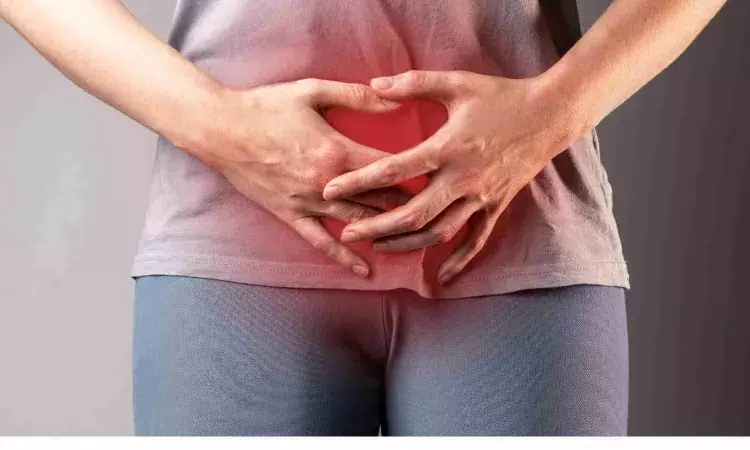- Home
- Medical news & Guidelines
- Anesthesiology
- Cardiology and CTVS
- Critical Care
- Dentistry
- Dermatology
- Diabetes and Endocrinology
- ENT
- Gastroenterology
- Medicine
- Nephrology
- Neurology
- Obstretics-Gynaecology
- Oncology
- Ophthalmology
- Orthopaedics
- Pediatrics-Neonatology
- Psychiatry
- Pulmonology
- Radiology
- Surgery
- Urology
- Laboratory Medicine
- Diet
- Nursing
- Paramedical
- Physiotherapy
- Health news
- Fact Check
- Bone Health Fact Check
- Brain Health Fact Check
- Cancer Related Fact Check
- Child Care Fact Check
- Dental and oral health fact check
- Diabetes and metabolic health fact check
- Diet and Nutrition Fact Check
- Eye and ENT Care Fact Check
- Fitness fact check
- Gut health fact check
- Heart health fact check
- Kidney health fact check
- Medical education fact check
- Men's health fact check
- Respiratory fact check
- Skin and hair care fact check
- Vaccine and Immunization fact check
- Women's health fact check
- AYUSH
- State News
- Andaman and Nicobar Islands
- Andhra Pradesh
- Arunachal Pradesh
- Assam
- Bihar
- Chandigarh
- Chattisgarh
- Dadra and Nagar Haveli
- Daman and Diu
- Delhi
- Goa
- Gujarat
- Haryana
- Himachal Pradesh
- Jammu & Kashmir
- Jharkhand
- Karnataka
- Kerala
- Ladakh
- Lakshadweep
- Madhya Pradesh
- Maharashtra
- Manipur
- Meghalaya
- Mizoram
- Nagaland
- Odisha
- Puducherry
- Punjab
- Rajasthan
- Sikkim
- Tamil Nadu
- Telangana
- Tripura
- Uttar Pradesh
- Uttrakhand
- West Bengal
- Medical Education
- Industry
Pressure-Mediated Biofeedback Enhances Pelvic Floor Training for Stress Urinary Incontinence, finds study

China: A new randomized clinical trial has shown that combining pressure-mediated biofeedback (BF) with pelvic floor muscle training (PFMT) is more effective in treating stress urinary incontinence (SUI) than PFMT alone.
The findings, published in JAMA Network Open, support using pressure-mediated biofeedback devices to enhance treatment outcomes for patients with stress urinary incontinence.
Stress urinary incontinence, a common condition in which patients experience involuntary leakage of urine during physical activity or stress, often results from weakened pelvic floor muscles. Pelvic floor muscle training has long been the standard conservative treatment for SUI, focusing on strengthening the muscles to improve bladder control. However, there is a need for more evidence on whether adjunctive methods would provide additional benefits.
Against the above background, Xiuqi Wang, National Clinical Research Center for Obstetric and Gynecologic Diseases, Beijing, China, and colleagues aimed to compare the effectiveness of PFMT with and without the use of a home-based pressure-mediated biofeedback device.
For this purpose, the researchers conducted a multicenter, assessor-blinded randomized clinical trial in five obstetric clinics in China. Eligible women with new-onset postpartum SUI were enrolled between March 28, 2022, and October 13, 2023. Participants received three months of supervised pelvic floor muscle training and were randomized to either the intervention group (PFMT with a home-based pressure-mediated biofeedback device) or the control group (home-based PFMT).
Primary outcomes included urinary incontinence severity, and secondary outcomes included cure rates, pelvic floor muscle strength, quality of life, self-efficacy, and adherence.
The study led to the following findings:
- A total of 452 participants (median age 34 years; median body mass index 23.71; median time since delivery 50 days) were included in the analysis, with 223 in the intervention group and 229 in the control group.
- The intervention group showed significantly greater improvements compared to the control group, including a larger reduction in incontinence severity (median, 3.00 versus 2.00 points), a higher cure rate (20.2% versus 8.7%), and a greater improvement rate (59.2% versus 44.5%).
- Pelvic floor muscle strength was significantly higher in the intervention group (median, 26.00 versus 21.00 cm H2O), and there was a stronger correlation between subjective and objective adherence (r = 0.825 versus r = 0.627).
This randomized clinical trial found that a 3-month supervised, home-based pressure-mediated biofeedback training for postpartum stress urinary incontinence was more effective than pelvic floor muscle training alone. The intervention showed a stronger correlation between self-reported and video-recorded adherence.
"These results suggest that pressure-mediated BF devices allow clinicians to closely monitor patients, potentially easing the burden on healthcare systems. Importantly, the study provides further support for incorporating pressure-mediated BF as an adjunct to PFMT to enhance treatment outcomes for SUI patients," the researchers concluded.
Reference:
Wang X, Qiu J, Li D, et al. Pressure-Mediated Biofeedback With Pelvic Floor Muscle Training for Urinary Incontinence: A Randomized Clinical Trial. JAMA Netw Open. 2024;7(11):e2442925. doi:10.1001/jamanetworkopen.2024.42925
Dr Kamal Kant Kohli-MBBS, DTCD- a chest specialist with more than 30 years of practice and a flair for writing clinical articles, Dr Kamal Kant Kohli joined Medical Dialogues as a Chief Editor of Medical News. Besides writing articles, as an editor, he proofreads and verifies all the medical content published on Medical Dialogues including those coming from journals, studies,medical conferences,guidelines etc. Email: drkohli@medicaldialogues.in. Contact no. 011-43720751


